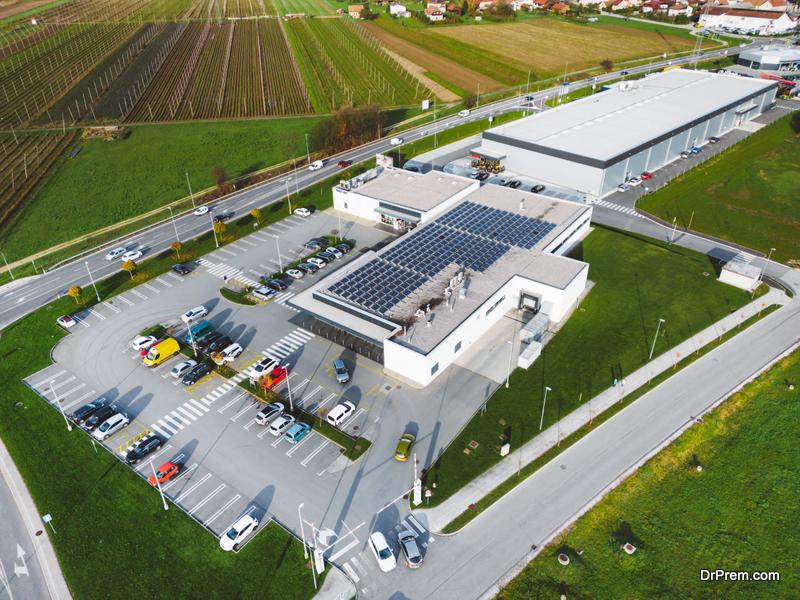Going green is one of the hottest trends in modern business. Owners don’t make the move to eco-friendly practices just to create a sustainable workplace. Profit is part of the motive as well. While there are dozens of ways to achieve the goal, entrepreneurs and managers have a few favorites, like relying on solar power, going paperless, operating electric vehicle fleets, transforming their organizations into virtual enterprises, engaging in extensive recycling programs, installing smart lighting systems, and more. The methods are all great ways to boost conservation, but they also help companies save money in a variety of ways. Here are more details about how owners go green.
1. Solar Buildings
Installing rooftop solar panels is a gamechanger for thousands of small businesses. It’s a clever and efficient way to minimize reliance on standard power generation methods because it can substantially reduce monthly utility expenses. While some owners like the idea of environmental conservation as a concept, they soon discover that a full-scale solar array can pay for itself in a few years and strengthen the long-term financial health of the organization.
2. Electric Fleets
Fleet managers and transport company owners have plenty to gain by adding EVs (electric vehicles) to their fleets. However, they need to pay close attention to the range on EV’s while shopping for new cars, trucks, buses, vans, or people carriers. It’s imperative to compare ranges to find out which EVs can go farthest on a single battery charge. In addition, while shopping for new vehicles, fleet managers need to educate themselves about the different kinds of charging units they can buy.Setting up accessible and convenient charging areas on company property is an essential part of creating in-house infrastructure that makes good economic sense. Finally, every fleet supervisor needs to explore how the latest technology can maximize EV range. Careful energy management, diligent route planning, and smart charging can keep ranges and total expenses for an EV fleet as low as possible.
3. Paperless Offices
There is multiple benefits of a paperless office. For busy managers in a variety of industries, the most obvious advantage is the elimination of clutter and trash. However, the more subtle outcome is a much smaller environmental footprint. That’s because paperless offices encourage the transition to digital file storage and office communications.It’s not just about saving trees but making the entire workspace a more efficient place. When ownership teams make the decision to remove paper from the equation, they instantly give their places of business a more modern image. Workers can collaborate more easily and quickly, and customers make note of the company’s commitment to sustainable practices.
4. Virtual Companies
Virtual companies are popping up all over the internet. Most are either accounting or law firms, both of which attempt to leverage access to a national client base, significant savings on office space, fewer workers, and having lower advertising costs. Clients like virtual firms, too, because service fees tend to be lower, and they can deal with service providers via email or video connection almost any time of the day. Virtual tax accountants can have as many as 1,000 employees, all of whom work from home.
Article Submitted By Community Writer




